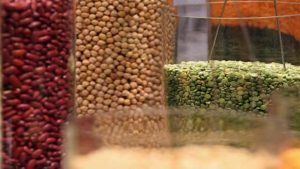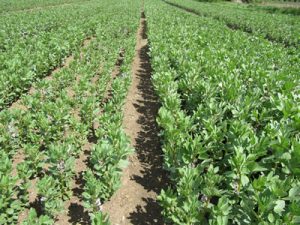Highlights
Price Of Pulses May Drop, Says Food Minister Ram Vilas Paswan
After the prices of honey touch a sweet low, pulses may soon follow suit. Food and Consumer Affairs Minister said that the wholesale prices of pulses are falling and consumers may also have shell out a little lesser in the coming days.
Unlike the case of honey, where the major cause was an increase in domestic output, pulse prices will experience the slump as a result of the government stepping into to start procuring pulses from farmers in cases where the prices are being quoted below the minimum support price. This change will first be seen in moong prices.

“Due to the government’s efforts, pulses’ prices are correcting. Some pulses, like moong, are selling below the minimum support price. You will soon see a price correction in retail markets,” Paswan revealed on Thursday, speaking on the sidelines of industry lobby FICCI’s sixth annual convention on retail, FMCG and e-commerce.
Paswan also said that a lot of farmers have started approaching him in order to be pulled out of the distress situation. “The government will buy pulses from farmers. We boosted farmers’ morale by increasing MSP. I want to assure farmers that we are there for them,” he said.

According to the government’s numbers, currently tur dal is being sold at Rs 170 a kg, urad at Rs 175 a kg, moong at Rs 130 a kg, gram at Rs 120 a kg and masoor dal at Rs 115 a kg in retail markets.
Earlier this week, an interministerial committee led by consumer affairs secretary Hem Pandey has directed government organizations NAFED and Food Corporation of India to present a state-wise road map based on the procurement of new pulse crops. For starters, the two agencies will begin with procuring moong in Karnataka immediately at the Minimum Support Price (MSP) and bonus as the new crop has started to arrive. The agencies have been told to ensure direct payment to the farmers post procurement of crops.
The government has also tacked pulse production at an impressive 20 million tonnes in the crop year 2016-17. This number is way higher than last year’s 16.47 million tonnes.

Meanwhile, the third week of September will see a meeting to discuss the ban on sugar trading. This move will come directly after a study being done by market regulator Sebi and the finance ministry is completed. In the case of wheat though, the country has enough stocks and therefore no decision has been taken on scrapping import duty.
Feature Image: Food Tank




















